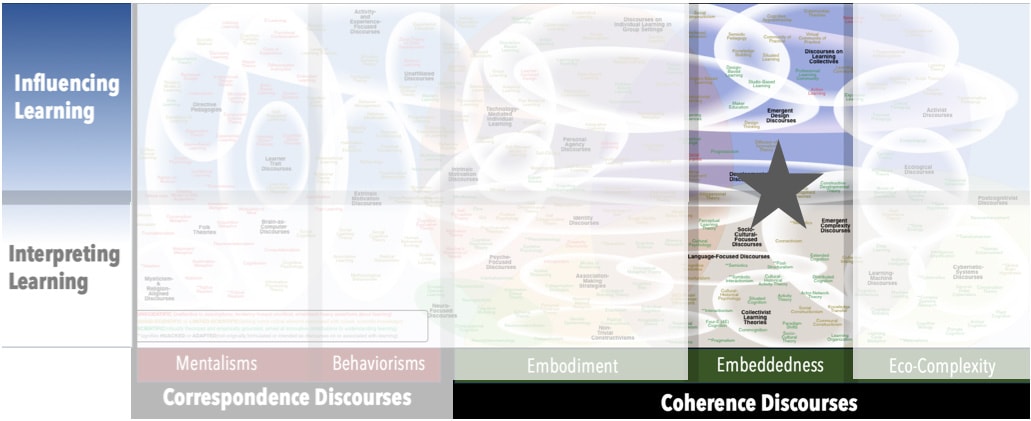Focus
Understanding social and cultural collectives as dynamic, learning phenomenaPrincipal Metaphors
- Knowledge is … scope of possible collective actions and interpretations
- Knowing is … appropriate collective functioning
- Learner is … an agent(s) with/in social collective(s)
- Learning is … selecting, blending, and refining possibilities
- Teaching is … designing experiences (orienting, juxtaposing)
Originated
mid-1900sSynopsis
Embeddedness Discourses is a sub-category of Coherence Discourses. It is an umbrella term that reaches across perspectives on learning that refuse separations of self from other and individual from collective. Perceived boundaries among persons and peoples are understood as heuristic conveniences, as collective phenomena are recognized to unfold from and to be enfolded in individual phenomena. Phrased differently, collective forms are understood as learning bodies. Associated categories include:- Biosocial Theory – an umbrella category of theories that look across biological, emotional, intellectual, social, and situational aspects of experience and existence to make sense of their phenomena of interest
- Situativity Theory – an umbrella category that reaches across perspectives on learning that emphasize context and embeddedness, especially those that refuse the separation of individual and environment
Commentary
Different Embeddedness Discourses attend to, grapple with, and prompt different issues – and so it doesn’t make much sense to attempt a general commentary. There are few robust criticisms of Embeddedness Discourses, as most negative remarks are anchored to deep-seated metaphysical assumptions that rely on such dichotomies as self/other, individual/collective, and fact/fiction.Subdiscourses:
- Biosocial Theory
- Situativity Theory
Map Location

Please cite this article as:
Davis, B., & Francis, K. (2022). “Embeddedness Discourses” in Discourses on Learning in Education. https://learningdiscourses.com.
⇦ Back to Map
⇦ Back to List
